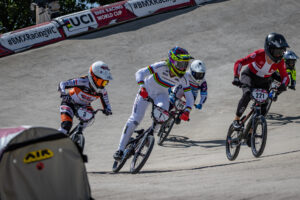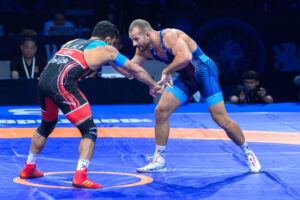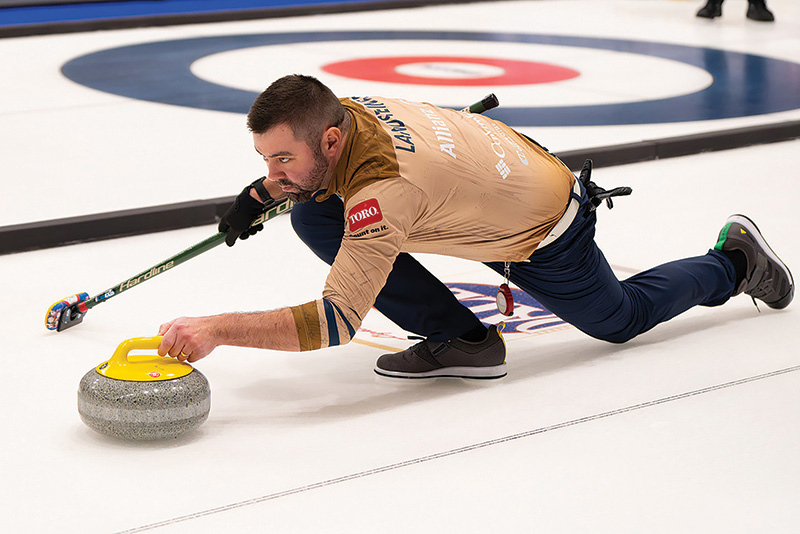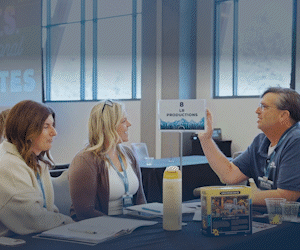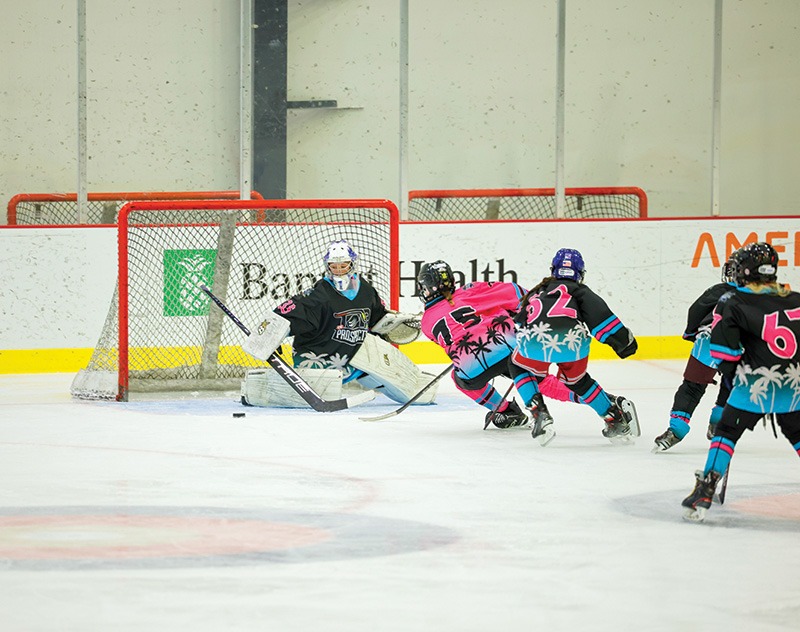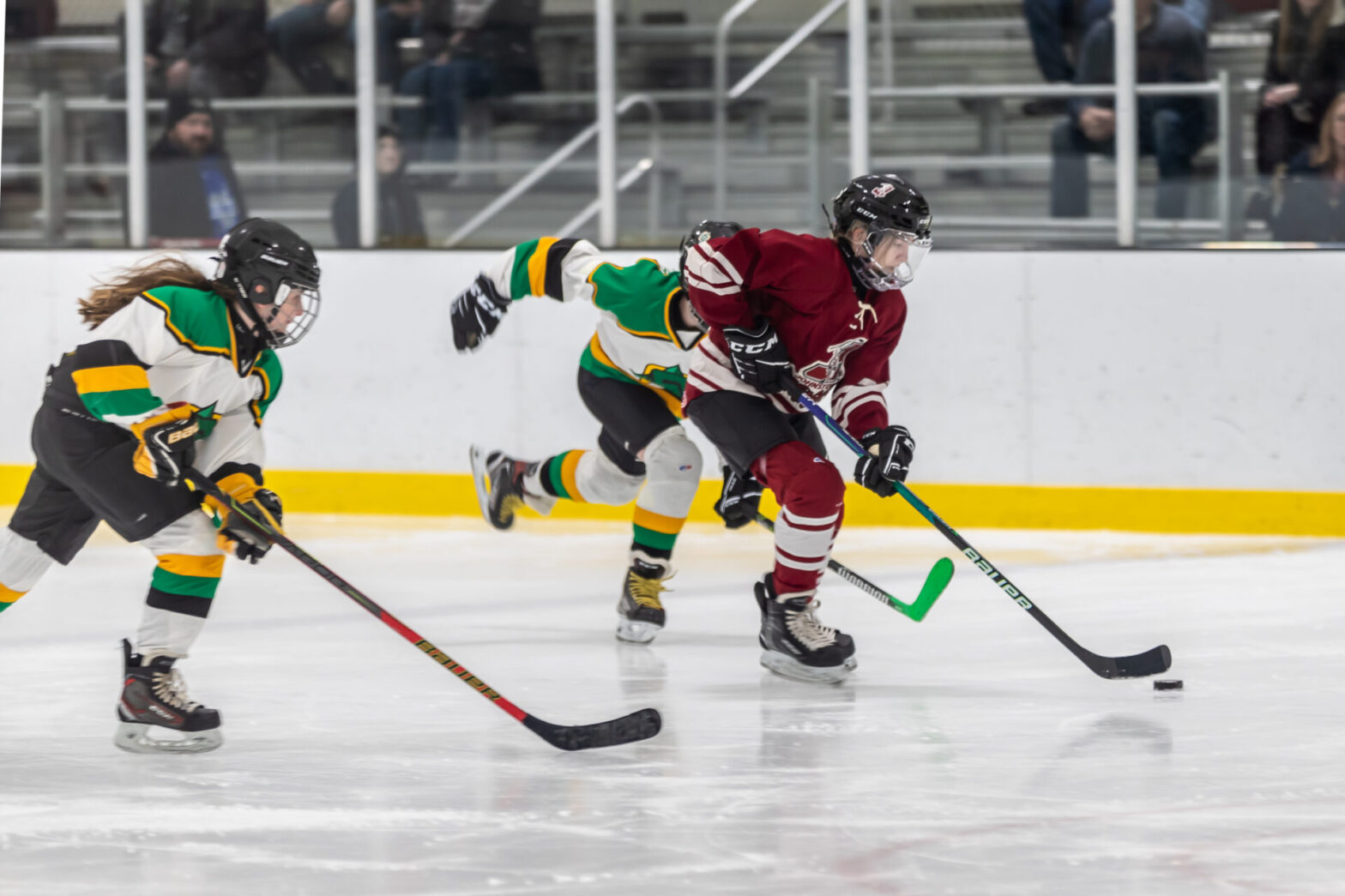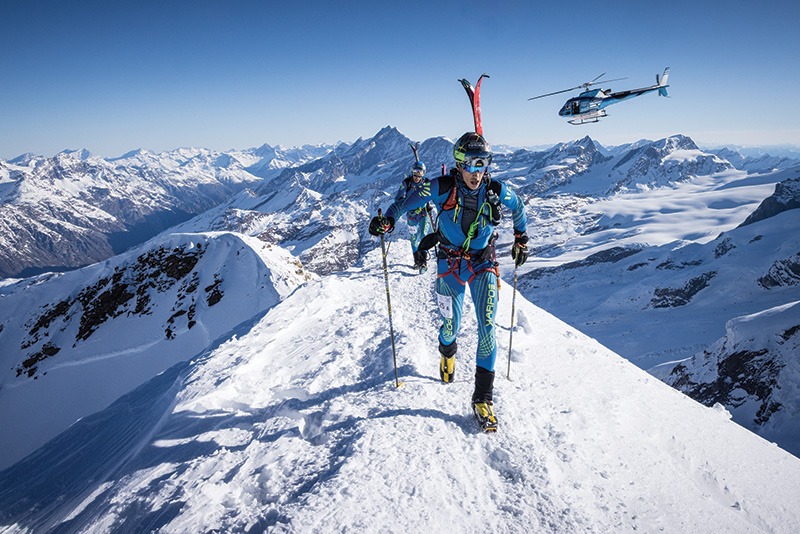Many athletes dream of one day becoming an Olympian and representing their country at the pinnacle of the sports world. But not all have the characteristics, work ethic, and athletic ability required to ever go for gold. Yet, for those who do, their determination and drive never seem to quit. As the 2024 Summer Olympics approaches and so many athletes are chasing their dreams, SportsEvents sat down with three hopefuls to talk about the long road that led them to sports’ biggest stage.
Felicia Stancil, USA Cycling
Felicia Stancil has been a BMX racer for as long as she can remember. She got her start just a few months before her fifth birthday at the encouragement of her father, Jamie, who used to race professionally. “We went on bike rides all the time, and he saw I had somewhat of a natural ability on bikes,” Felicia says. “He asked one day if I’d like to try a BMX track, and I said yes. It has been almost a nonstop journey since then.”
She won her first national title at the age of six. By the age of nine, Stancil and her father began traveling the world so she could compete in international BMX events, and that’s when she won her first world title. In fact, she has competed in almost every world championship. “I think I’ve only missed two or three, ever,” she says. “My dad introducing me into that high-pressure world at a young age was really helpful for me, in addition to the fact that he taught me everything he knew in the sport, which progressed me a lot, and then got me my own coach.”
In high school, Stancil did try other sports—participating in everything from basketball to volleyball—but the passion for BMX remained. At the age of 16, she chose to quit high school sports and focus solely on racing and become a Junior Pro. At the age of 17, she became the Junior Women’s World Champion, repeating in 2018. “There are only two people in the history of the sport to have won both years as Junior Pro,” Stancil says. “I was lucky enough to be one of them.”
While attending Marian University in Indianapolis, Ind., on a cycling scholarship, Stancil became the Pan American Champion in 2015. After graduating with honors, she began racing professionally—but not before winning her 10th world title as an amateur. As a professional, she has already been named the 2019 USA Cycling Elite National Champion and the 2019 Pro of the Year. Soon after, she made the USA Cycling Olympic Team to compete in the 2020 Tokyo Games, finishing in fourth place. “I was proud of it and my entire Olympic experience, but it was bittersweet, obviously, as it was one place off the podium,” Stancil says. “But it has motivated me even more to push my limits both mentally and physically, and I think I have since then.”
Since Stancil’s fourth-place finish, she has gone on to win the Elite Women’s BMX Racing World Championship. She continues to compete in multiple events every year, including five international events and the world championships. Now, she has her sights set on the gold in the 2024 Olympic Games. Almost two years ago, she moved to Florida from her home state of Illinois for weather more conducive to year-round training.
“I’ve fallen in love with the process of training and pushing my body to its limit,” Stancil says.
In preparation for her previous Olympics, the training was much different, Stancil explains. Still in the middle of the pandemic, facilities were closed, and she had to adapt to training at home. “I actually got a home gym since everything was closed,” she adds. “Since COVID, I still do a lot at home with my own equipment, but we’ve gotten into a new normal where things have opened back up. But that hasn’t stopped working out more alone and having more private sessions at the track.”
Stancil, like many other athletes seeking to make Team USA, continues to compete to earn her spot. There are still multiple races left to qualify, and as of now, she’s on track to do so. One of the very last Olympic qualifying events is on her birthday, May 18, 2024. She’s hoping to celebrate by ensuring she’s headed to her second Olympic Games.
“I’m taking it all day by day and trying to get a little better every day,” Stancil says. “With all of the travel we do, there’s a lot to focus on day in and day out, whether it’s fatigue or keeping up with your nutrition. But I feel good going into these last qualifying events and hopefully into the Olympics. I just continue to try to put myself in the best position possible to get the chance to once again represent my country the best that I can.”
David Taylor, USA Wrestling
David Taylor has been wrestling since he was five years old, but he got into the sport by chance. “Like any five-year-old, I was full of energy and bouncing off the walls,” he said. “My mom saw an ad in the paper for a wrestling club. I went to the first practice and liked it.”
Though he didn’t have immediate success with the sport—he lost every single match except for in the verylast tournament of the year—he had found his sport. “I fell in love with the sport,” Taylor says. “Each year I got a little better.”
So much so that he ended up at Penn State University, where he became a two-time NCAA Division I National Champion, four-time Big Ten Conference champion, two-time Dan Hodge Trophy winner, and two-time U.S. University National winner. Taylor then went on to try to place for the Olympic Team. “I wrestled in the 2012 Olympic Trials while in college, but I didn’t place,” Taylor says. “Then I placed third at the trials in 2016.”
Before the chance to try for the U.S. Olympic Team again in 2020, he won his very first World Championship in 2018 and his first Pan American title. When the time came for the Tokyo 2020 Summer Olympics, he not only made the team and represented the United States, but he won gold. “The Olympics is a culmination of your life’s work,” Taylor says. “Making the Olympics was more delayed than I thought it would be, but things worked out the way they did. When I got it, I wanted to make the most of it. You never know if four years later you will be in the same position at that point in time. I wanted to win, and I was grateful to be there. I waited for that moment my whole life.”
Since standing atop the Olympic podium, Taylor went on to repeat at the World Championships in 2021 and 2022. Now, he’s eagerly preparing for the opportunity to repeat as Olympic champion as well.
“… training is pretty constant. Now with the Olympics coming up, it’s definitely on the forefront of everyone’s mind. It’s the driving factor for every decision made, every training session, and every time you eat something or are making a choice. In the back of your mind, you’re thinking about the Olympics and if something is helping you get closer to your goal or tear you further away from it,” he says. “And I think for me this being my second Olympic team, I have a different preparation. There’s a lot more unknown the first time. After being there and going through that process already, I have an understanding of what it will take, what the experience is like, and how I can cater my training to be more prepared to do it again.”
However, as Taylor notes, training for the Olympics is much different this time. Not only have there been major changes in his personal life—he now has two little girls and a third on the way, which affects his focus and time commitments—but the world has largely moved passed the pandemic. “During the pandemic, we couldn’t go inside gyms and had to find alternative ways to train [for] a long time,” Taylor says. “The Games were delayed a year and even with that there was always the possibility it wouldn’t happen. I remember my mindset was that those decisions were out of my control. I had to remember that I could only control being in the best shape and having my mindset ready to go as if it were going to happen. But this, time those barriers won’t be there. It should be normal training and preparation.”
In preparation for Olympic Team trials, Taylor trains four days a week, two times a day.
“I’m obviously older, which changes some training, but now I can be much more effective with a lot less volume,” he says, while also pointing out his drive to repeat as a gold medalist
hasn’t changed.
. “Luckily, I have a little more experience on my side now, and I’m trying to use it the best I can so that I have the opportunity to represent the United States in Paris,” Taylor says.
Editor’s note: Taylor has qualified for his weight class for the Olympics, but there has been no team qualification yet. The Olympic Trials are scheduled for April 2024.
Meredith Sholder, USA Field Hockey
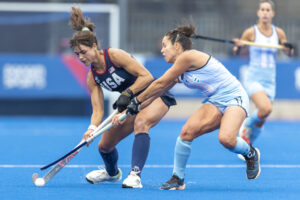
For 24-year-old Meredith Sholder, a love of field hockey runs in the family. The Fleetwood, Pa., native has watched her mother, aunt, and cousin all play, so it was just a matter of time before she entered the sport. “My mom also went on to play field hockey at Harvard, so she was the one that got me into the sport,” she says.
Sholder started playing field hockey when she was in the second grade. Her mom served as her coach while she was in youth league until the seventh grade.
Sholder went on to attend the University of North Carolina at Chapel Hill, where she continued to play field hockey. While there, she became the NCAA Division I National Champion in 2018—repeating in 2019—and received numerous other honors as well.
This year, she was named to the U.S. Women’s National Team, and she’s working toward making her very first U.S. Olympic Team. That means training five days a week. Typically, Sholder practices Monday through Friday, two to three hours each day, with two conditioning days. “The sessions will vary between low/medium intensity and high intensity,” she adds. “We occasionally have additional optional sessions if we want to get some extra touches in, and then we have three weightlifting sessions a week.”
The Olympic qualifiers for field hockey are scheduled to take place in January. Until then, Sholder is doing all she can to be her best for that day and, hopefully, Paris in 2024.
“I think the hardest part of training for the Olympic team is doing everything you need to do as an individual to ensure you’re at your best physically and mentally every day,” she adds. “You must devote so much time into your sport. Aside from all the training you do, you push your body to the limit every week to improve your strength and conditioning. You always need proper nutrition, hydration, and sleep, and then you need to also fit in recovery methods so that you can do everything you can to prevent injuries.
On top of that, you need to find a balance outside of the sport to promote your mental health so you’re not constantly under the high stress and pressures of your sport. It’s a lot of sacrificing to become the best you can be, but that’s what it takes to be on the Olympic team, and making the team would make it all worth it,” she explains.

